
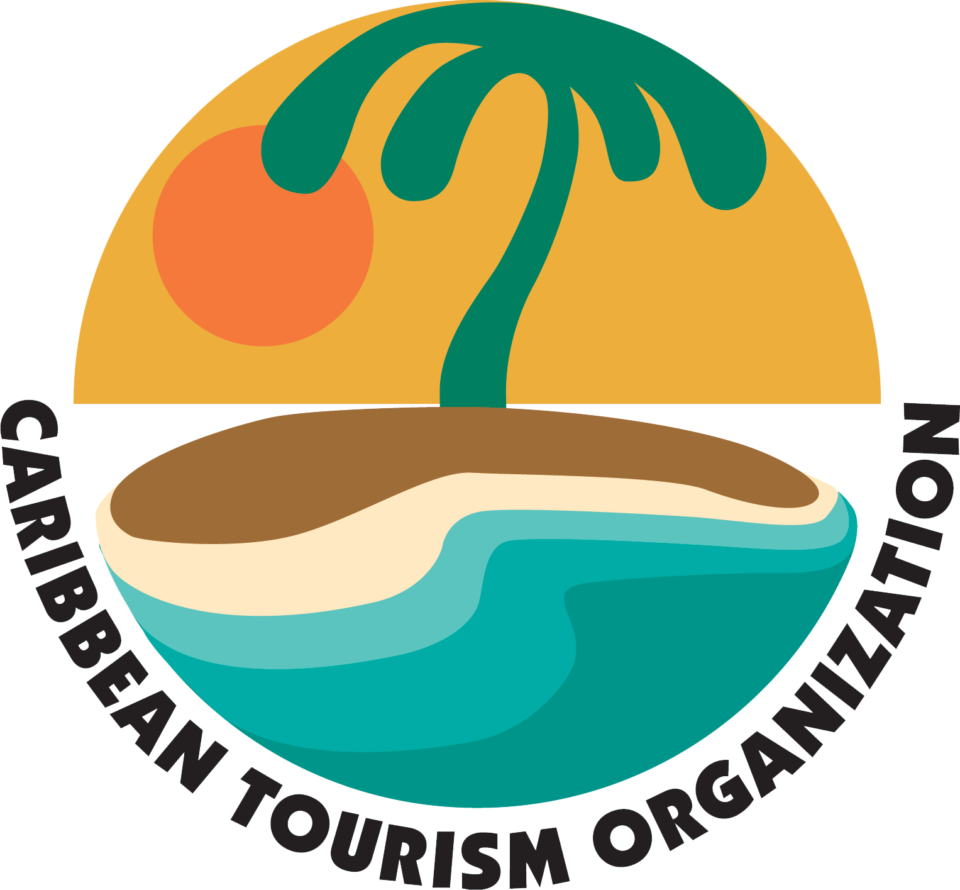
eTurboNews joined the Caribbean Tourism Organization
eTN Corporation, the owner of eTurboNews officially joined the Caribbean Tourism Organization (CTO) as a member this week.
The Caribbean Tourism Organization is a tourism development agency with 24 Dutch, English, Spanish, and French country members along with a myriad of private-sector allied members. The CTO’s vision is to position the Caribbean as the most desirable, year-round, warm-weather destination for a holiday. Its purpose is guided by the concept of Leading Sustainable Tourism. CTO is based in Barbados with offices in New York and London.
eTN Corporation owns eTurboNews in addition to a myriad of other publications that reach out to travel professionals, consumers, and the media all over the world. In addition to eTurboNews.com, eTurboNews.eu there is etn.travel (Global Travel Industry), eturbonews.de (German language editions), forimmediaterelease.net (wire service for journalists), travelindustrydeals.com (for travel agents), meetings.travel (meetings/MICE industry), aviation.travel (aviation news), gaytourism.travel (LGBT travelers), worldtourismwire.com (news about top travel and tourism organizations, such as UNWTO, WTTC, ETOA, ICTP), travelwirenews.com (tourism news sources, mainstream readers), wines.travel (wines and food news), and hawaiinews.online (Hawaii specific).
eTN is headquartered in Hawaii, USA with offices or representations in California, Florida, New York, Texas, Australia, Czech Republic, HongKong, Jamaica, Jordan, India, Indonesia, Israel, Italy, Peru, Poland, South Africa, South Korea, Spain, Thailand, Tanzania, Uganda, UAE, Seychelles, Zimbabwe. eTurboNews Germany is located in Duesseldorf and Hamburg. In addition, eTurboNews has ambassadors in more than 100 countries.
The corporation also owns TravelMarketingNetwork, a group of specialized marketing gurus from various sectors of the travel industry. The network is a public relations consultancy geared specifically to the needs of the travel and tourism industry providing tailor-made PR solutions and advice on marketing and branding for companies engaged in travel, transport, and tourism-related businesses.
eTN is a founding member and major force behind ICTP (The International Coalition of Tourism Partners) and the newly established African Tourism Board.
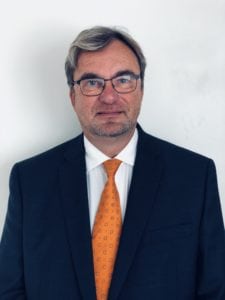
eTN Publisher and President Juergen Steinmetz said: “For many years, eTN has covered breaking news about the Caribbean as well as issues relevant to the region in detail. eTN had partnered with numerous events in the Caribbean, including the UNWTO Global Conference on Jobs and Inclusive Growth in Jamaica.
“It’s time to partner with the Caribbean Tourism Organization and work with their members so they may have even better access to our extensive network, and to make a difference in the development of tourism in the Caribbean.
“We’re proud to join the best of the best representing the Caribbean Travel and Tourism industry through the Caribbean Tourism Organization.”
eTurboNews was founded in 1999 and has been a trusted resource for the global travel and tourism industry for 19 years, and the only publication in the world providing world-wide travel and tourism news by the hour, 24/7. Through its readership, partnerships, and searchability, positioning, and an extensive social media network eTurboNews combined reach includes 230,000 travel industry professionals email subscribers, 17,000 journalists, and 1.3 million average consumers.
eTurboNews has never been known for lip-service, but for fair, spicy coverage readers love to see.
eTN is different from most online media. eTN Publisher Juergen Steinmetz said: “We do not believe in free “earned media” as a method to have our hard-working editorial team provide free coverage for commercial or promotional purposes.
“In joining the Caribbean Tourism Organization we hope to establish new win/win partnerships, bring some of our events to the region, and learn more about the true issues relevant to the Caribbean, and integrate best practices into our global way of thinking. “I am looking forward to attending the upcoming SOTIC (State of the Tourism Industry Conference) in the Bahamas, September 1-5.”
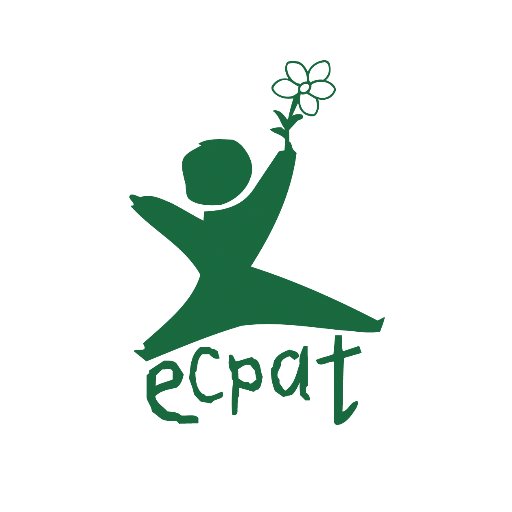
Child Prostitution in Malaysia: A Haven for Human Trafficking generating Tourism Revenue
Is Child abuse through Tourism part of “Malaysia Truly Asia” ? Tourism is big business in Malaysia. Abusing children is more lucrative than exploiting adults in the travel and tourism industry. According to Child Rights International Network, Malaysia is a Haven for Child Prostitution.
Child Protection may no longer be a priority for UNWTO after Secretary-General Zurab Pololikashvili quietly and with not even an explanation to long-serving members canceled all meetings of the UNWTO Child Protection Committee from the minute he took over the leadership of UNWTO. Even to members of the committee, like the publisher of this wire, it’s not clear if this group still has a function.
It waits to be seen how much of a leader will PATA take at their upcoming PATA Mart in Langkawi in September? Checking the PATA Mart agenda, human trafficking of children is not yet on the agenda. Is this an uncomfortable subject to discuss? PATA had demonstrated their support for Child Protection in the past. This will hopefully happen again at the PATA Mart in Malaysia.
Coordinated with the United Nations, World Day Against Trafficking in Persons, ECPAT in Bangkok today is ringing alarm bells loud and clear. ECPAT released their ECPAT-Country-Overview-Malaysia-2018 , a devastating report about the extent of child prostitution, human trafficking and the legality of child marriage in Malaysia. Malaysia is a peaceful mostly Islamic South East Asian country, and a great destination for excellent food, nature, cities, and beaches. Malaysia is a dream travel destination.
ECPAT’s devistating report opens the dark side of Tourism to Malaysia. This dark side includes human trafficking and exploiting children through prostitution, child marriage. It’s a massive problem in Malaysia.
The report demonstrates human traffickers may be exploiting children through prostitution in Malaysia because among other reasons – it is more lucrative than exploiting adults.
ECPAT International, a global network of NGOs, has released a report detailing the scale of the sexual exploitation of children in the country which highlights this worrying trend. The document says that it can be more than twice as profitable to sexually exploit children than adults. And while reliable data on this topic is difficult to find, it is thought that at least 150 children a year are being sexually exploited in Malaysia in this manner.
“Prostitution is illegal in Malaysia, yet it remains widespread,” says Mark Kavenagh, Head of Research at ECPAT International. “Indications are that a significant number of young women and girls, from across Southeast Asia – are sexually exploited in this way in Malaysia. They are often tricked into the sex trade after having been recruited for what they thought was going to be work in restaurants, hotels and beauty salons. There are also cases of marriage being used to recruit, such as with Vietnamese women and girls who entered into brokered marriages and were later forced into sex work.”
While it is difficult to quantify the number of child victims who have been trafficked for sexual purposes, Malaysia’s relatively porous borders and location in central Southeast Asia make it a destination, transit country and source country for trafficking to serve both domestic and tourist markets.
Child marriages, which remain legal in some cases in Malaysia, also endanger children, says ECPAT. “We know that child early or forced marriage can be devastating to children, from preventing their right to education to exposing them to sexual violence,” explained Kavenagh. “Sometimes children forced into marriage are subsequently sold by family members.”
The report also warns that online child sexual exploitation is a growing concern, with Malaysia now ranked third amongst ASEAN countries in terms of possession and distribution of child sexual abuse material. The live streaming of child sexual abuse, online grooming of children for sexual purposes, and sexual extortion of children are all on the rise according to ECPAT.
However, Malaysia has made progress in tackling trafficking in recent years, and the United States government recently acknowledged Malaysia’s efforts to strengthen enforcement of the law and expand trafficking investigations and prosecutions. Malaysia also recently passed the 2016 amendment to the Child Act that established a registry of child sex offenders, and the Sexual Offenses Against Children Act 2017, which came into force this year and strengthened child protection by criminalizing a broader array of activities. However, after good progress in 2017 saw the country upgraded, Malaysia was downgraded to the “Tier 2 watch list” in the 2018 US Department of State Trafficking in Persons report.
The ECPAT report’s recommendations also call on Malaysia to increase efforts to better understand how it is impacted by child sexual exploitation, alleging that there is no apparent initiative to increase the scope of research done on the sexual exploitation of children in Malaysia.
“We know that this crime is a massive problem, but it is also clear that there are significant gaps in our understanding of the issue – both in Malaysia and the region,” says Kavenagh. “This is a crime that happens in the shadows. Criminals like shadows. ECPAT would like to invite the Malaysian government to help us address this as a matter of urgency.”
Malaysia cannot lose face in the global travel industry and should aggressively and immediately address this issue more seriously. It’s important for Malaysia as a leading holiday destination to become a leader and not a perpetrator of this issue.
Most major hotel groups are in Malaysia and operate resorts and hotels in cities. Most major airlines fly to Malaysia. What are these hotels, and what are airlines doing to prevent this crime? eTN is interested in your feedback and welcomes comments. Feel free to email us at [email protected] (also confidential) or post stories and feedback on www.buzz.travel
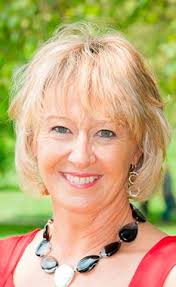
Fiona Jeffrey OBE new Chair of ATTA
Fiona Jeffery OBE has been appointed new Chair of the African Travel & Tourism Association (Atta), succeeding former chair Julian Edmunds.
Fiona has served on the Atta board for four years as Industry Relations Director, and has had a long and accomplished career in the travel and tourism industry. Responsible for World Travel Market (WTM) from 1986-2013, both as Managing Director and ultimately as Chairman, Fiona brings a wide breadth of knowledge to the role across all aspects of the industry, from government, national tourist boards and destinations to private sector and international trade bodies and organisations.
Founder of international water development charity Just a Drop, Fiona’s work has taken her to destinations across Africa undertaking projects to provide clean water and sanitation to remote communities. She also created and launched World Responsible Tourism Day, a responsible tourism drive across the industry globally, in association with the UN World Tourism Organization (UNWTO).
In 2012, Fiona was awarded an OBE by Her Majesty the Queen for services to travel and tourism, and in 2013 received the TTG Contribution to Industry Award.
Commenting on her appointment, Fiona Jeffery OBE said; “Being selected as the new chair of Atta is an unexpected honour I do not take lightly. My predecessors have all done amazing jobs, and my role is to build on their success. With new opportunities emerging all the time, Atta will seek to embrace these, putting the interests of our membership at its heart.
“My love of Africa began on honeymoon with my husband Nigel, exploring Kenya by four-wheel drive vehicle, and I am keen to tackle the issues and opportunities of the industry across the continent. These include sustainability, the dangers of overtourism, wildlife conservation and wider issues around poaching, gender equality and the opportunities of tourism to support socio-economic empowerment and development. It will be important to play our part supporting and furthering the agenda in many of these areas to ensure joined up thinking and increased impact across our industry.”
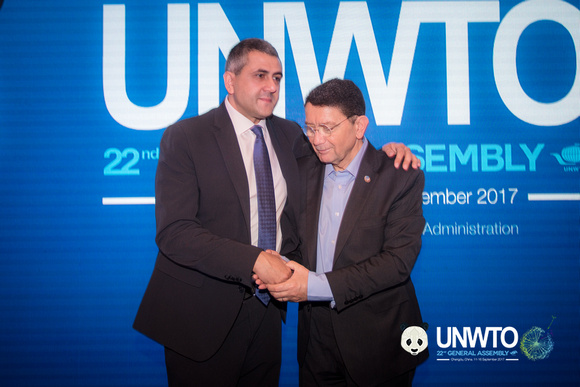
UNWTO Policy dismantled and destroyed: Can the Executive Council save UNWTO?
Will members of the UNWTO Executive Council stand silent in San Sebastian today? Will Executive Council countries stand behind Secretary General Zurab Pololikashvili, or will they respect the legacy of Dr. Taleb Rifai?
Today is the day many concerned about the future of the World Tourism Organization (UNWTO) have been looking forward to. Today is the day the UNWTO Executive Council is meeting for the first time under the leadership of Secretary General Zurab Pololikashvili.
Everyone would hope the Executive Council remembers the words by former Secretary General Dr. Taleb Rifai. Rifai said on December 27, 2017, when he handed over the reigns: “Whatever our business in life may be, let us always remember that our core business is, and will always be, to make this world a better place. I wish Mr. Zurab Pololikashvili, the incoming Secretary-General, every success in continuing to drive our sector forward to a better future.”
Now after almost 5 months in charge of UNWTO, almost all UNWTO top positions are now filled with cronies of Zurab Pololikashvili.
Our UNWTO, under the new regime of Pololikashvili, who has been surrounding himself with a new Chief of Staff from Russia and the deputy from Azerbaijan, and other key people, are mostly of his own geographical regions of comfort, none having any experience from the world of multilateral institutions or international protocol, both of which are necessary to run a successful international organization. Friends put into strategic positions appear to be protecting Pololikashvili from colleagues outside of this circle of buddies.
Pololikashvili let go of the Head of Administration and Finance, the Head of Human Resources, and the Head of IT, but promoted the Head of the Legal Council who stood by him at the UNWTO General Assembly.
Dr. Taleb Rifai during his decade of service succeeded in raising the bars of excellence within the UNWTO and within the UN system. When Rifai started, tourism was not a big agenda item for the United Nations. The UN climate was very different when Rifai handed over the reigns to Pololikashvili. We all can agree on one point, the enormous role the world’s largest economy – tourism – plays on the global stage.
Despite a low budget, Rifai worked to make a substantial difference in diversifying tourism in supporting initiatives like the Peace Through Tourism, Child Protection program, and the Silk Road project, just to name some.
However, all of these projects were canceled, dismantled, or destroyed by Pololikashvili. They were gone with the active broom Pololikashvili is cleaning house with, yet it leaves a trail of destruction in its wake.
During ITB Berlin in March 2018, Alla Perssolva was getting ready to deliver her report on the renowned UNWTO Silk Road program, which she has been working on for 28 years. Without Ms. Perssolva, Silk Road Tourism would not have earned the well-known brand name status it enjoys today. Alla Peressolova was very much looking forward to leading both events at ITB to conclude her UNWTO term and was then hit by a surprise when her name was not on the Berlin travel list. When trying to discuss this with UNWTO Secretary-General Zurab Pololikashvili, he was not available to talk to her. Again, no discussion, no response.
November 29, 2017, was all about honoring Carlos Vogeler, executive director of the World Tourism Organization (UNWTO) during the final session of the UNWTO Conference on Jobs and Inclusive Growth in Montego Bay Jamaica. Vogeler was honored by the Jamaica Minister Bartlett for 9 years of hard work for UNWTO.
Mr. Vogeler has been devoted to his position at UNWTO. Most tourism leaders considered him the second man in UNWTO. Travel and tourism was a 24/7 job for Carlos, and it showed with his results. At the Sustainable Tourism Conference in Jamaica, he again gave his very best, and was leading the UNWTO delegation with Taleb Rifai. It was his last assignment. Mr. Vogeler was unable to discuss his desire to stay on at UNWTO, or his unexpected sudden departure, which came as a surprise, even though his official period of services had ended. No response or giving in from Zurab.
These are big name players. There are many, many other staff members without known, public names who have been ousted, threatened, in addition to other key figures in UNWTO, who are gone from the platform. Whoosh goes the Pololikashvili broom.
On another note, transparent media relations is non-existent, and the transparency with which Dr. Rifai extended to the media is gone.
Of course, Pololikashvili is asked a lot of questions he doesn’t want to answer from inquiring media outlets. Now its time for the Executive Council to ask the very same questions.
This publication as an example has not been receiving responses from the UNWTO media department, “out of policy”.At the recent WTTC Summit eTN Publisher, Steinmetz was not allowed to ask a single question at a press conference Pololikashvili attended. According to a well-placed source, Pololikashvili instructed WTTC not to allow eTN to take the microphone during an open media conference. eTN finds that to be cowardly, and entirely inappropriate for a United Nations agency.
Dismantle and Destroy seems to be the management objective at UNWTO.
It appears many of the key projects Taleb Rifai put in place over many years of hard work are now being dismantled and destroyed.
All of this seems to be justified by an audit our newly-elected Secretary General ordered/purchased. He commissioned KPMG to conduct an audit, which delivered the manufactured reasoning for a clean sweep of the entire UNWTO organization.
It’s time for the Executive Council to be more than a rubber-stamp committee. After all, the Executive Council represents the countries of the world seeking income through the largest industry in the world: travel and tourism.
Perhaps its time to find out what it would take for a vote of “no confidence.” This has never happened before in the history of UNWTO, but never before was the global tourism industry in such peril, with the reigns of the world’s largest single industry in the hands of a despot Secretary General who has zero regard for the rich legacy he inherited from the esteemed, cherished leadership of Dr. Taleb Rifai.
This morning in Spain, the Executive Committee of UNWTO will convene for the first time since the new Secretary General Zurab Pololikashvili took charge of the specialized UN agency, based in Madrid, Spain.
The Executive Council’s task is to take all necessary measures, in consultation with the Secretary-General, for the implementation of its own decisions and recommendations of the Assembly and report thereon to the Assembly. The Council meets at least twice a year. Let’s hope they use the time wisely at the meeting today.
The Council consists of Full Members elected by the Assembly in the proportion of one Member for every five Full Members, in accordance with the Rules of Procedure laid down by the Assembly with a view to achieving fair and equitable geographical distribution.
The term of office of Members elected to the Council is four years, and elections for one-half of the Council membership are held every two years. Spain is a Permanent Member of the Executive Council. Currently, the chair of the Executive Council is Argentina, Vice Chair Zambia, and second Vice Chair India.
Member countries are: Argentina, Azerbaijan, Bahrain, Cabo, Verde, China, Congo, Democratic Republic of the Congo, Egypt, France, Ghana, Greece, India, Iran (Islamic Republic of), Italy, Jamaica, Japan, Lithuania, Mexico, Morocco, Mozambique, Namibia, Paraguay, Portugal, Republic of Korea, Romania, Russian Federation, Saudi Arabia, Seychelles, Slovakia, Spain, Sudan, Thailand, Uruguay, Zambia, and Zimbabwe. Flanders is the representative of the Associated Members, and the Representative of the Affiliate Members is the Instituto de Calidad Turistica Espanol (ICTE), Spain.
It is up to these members to question Pololikashvili on his antics and rampant mismanagement since he took office, a scant five months ago. It appears the situation to date has been that a new broom comes in, and cleans up whatever was there before. Even to the detriment of programs that were long in place and working successfully.
Almost on a daily basis this publication, eTN, is receiving messages from UNWTO employees, some in the very most inner circle, reporting to eTN about secret interrogations and intimidation of longtime staff members. The very same staff that were happily working cohesively under the Rifai leadership, are now living under a reign of terror, intimidation, and an absence of civility, generated by the newly-hired UNWTO staff and “management.”
So again, perhaps its time to find out what it would take for a vote of “no confidence.” This is new ground for UNWTO, and it is putting global tourism in danger, with the reigns of the world’s largest single industry in the hands of a despot Secretary General who has zero regard for the rich legacy he inherited from the esteemed, cherished leadership of Taleb Rifai.
Dismantling and destroying is not the leadership UNWTO deserves. It’s also not fair to do this to a predecessor, especially to a man of the character and standing Dr. Taleb Rifa earned in the global travel and tourism community.
We ask again: Will members of the Executive Council stand silent in San Sebastian today?
Taleb Rifai and Zurab Pololikashvili were not available for comments on this breaking news.
All eyes, with a keen interest in preserving our UNWTO, will be watching events in Madrid tomorrow.
Reference is made to articles published earlier by eTN and relevant to issues here. it would be worth for UNWTO members to read them again.
- WTTC Summit 2018 Buenos Aires: Was it worth it?
- New UNWTO Deputy Secretary General, how did he get there?
- Silk Road Tourism was Alla Peressolova: UNWTO termination without explanation
- What happened and what is next for UNWTO? The untold story continues…
- UNWTO slams door on Peace Through Tourism
- Taleb Rifai’s final words as UNWTO Secretary General: Make this world a better place
- Revenge? UNWTO fires Executive Director Carlos Vogeler
- To the new UNWTO Secretary-General Zurab Pololikashvili: Congratulations!
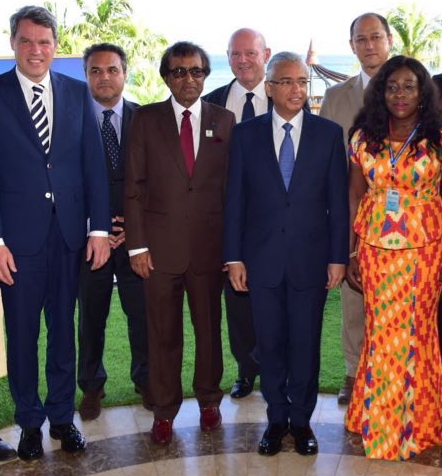
Digitalize & Sustainable Tourism Conference opened in Mauritius
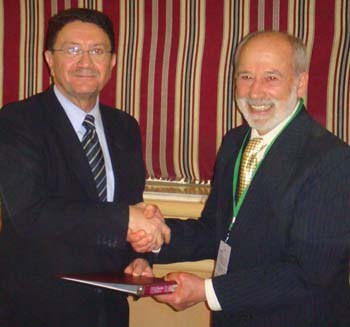
UNWTO says NO to Peace Through Tourism
It took just one short email for World Tourism Organization (UNWTO) Secretary-General Zurab Pololikashvil’s Azerbaijani chief of staff to destroy three years of hard work and expectation by Louis D’Amore, known as the man behind Peace Through Tourism. D’Amore is the founder and president of the International Institute for Peace Through Tourism (IIPT). IIPT is recognized and highly respected worldwide.
It took this short email in March to step on the role, legacy, and work of former UNWTO Secretary General Dr. Taleb Rifai. Rifai was an outspoken supporter of Louis D’Amore and peace through tourism. Dr. Taleb Rifai joined IIPT as the head of their advisory committee.
The email by the UNWTO chief of staff simply said: “UNWTO decided to no longer have a part in the IIPT – UNWTO summit planned for August in Montreal, Canada.”
UNWTO Secretary-General Zurab Pololikashvil personally did not contact Louis D’Amore or was available for a discussion.
There was no further explanation given. Dr. Rifai made sure when he left UNWTO the cooperation with IIPT was on solid ground. A former executive director trusted to work with IIPT on the Summit was terminated from UNWTO on December 31, 2017.
Today IIPT issued the following statement:
“IIPT was advised in early 2018 that UNWTO would continue to be involved in the Summit as originally planned. However, we learned in mid-March that UNWTO would not be involved. Subsequently, the major source of funding anticipated for the Summit did not materialize. We are, therefore, unfortunately, having to cancel the summit.
We sincerely regret any inconvenience this may cause.
IIPT was very much looking forward to its 30th-anniversary‘ family reunion’ – and our best conference since Vancouver 1988 that first introduced the concept of Sustainable Tourism and launched the “Peace through Tourism Movement” with 800 delegates from 68 countries whose feedback stated, “it was the best conference they had ever attended.”
We look forward to our continued collaboration and our commitment to making travel and tourism “the world’s first global peace industry” and the belief that every traveler is potentially an ambassador for peace.”
Peace through Tourism is the brand developed after Louis D’Amore concluded the world’s first comprehensive study on the future of tourism in 1976. Louis D’Amore is known as the man of peace.
Last year the International Institute for Peace Through Tourism (IIPT) under the leadership of its founder and president Lous D’Amore announced: “IIPT is proud to be returning to Montreal, where IIPT was born in 1986 during the UN International Year of Peace, with a vision of travel and tourism becoming the world’s first “Global Peace Industry” and the belief that every traveler is potentially an “Ambassador for Peace.”
D’Amore was proud to partner with the World Tourism Organization (UNWTO) under the leadership of then Secretary-General Taleb Rifai when he announced the Montreal summit to take place in September 2017 after the conclusion of the UNWTO General Assembly in Chengdu, China. UNWTO Secretary General Dr. Taleb Rifai was set to be the keynote speaker.
It was a disappointment for IIPT when the United Nations World Tourism Organization (UNWTO) 22nd General Assembly scheduled to be held in Chengdu, China, had been rescheduled by its Chinese hosts.China decided to move the dates of the General Assembly forward in September so that it now ends on September 16, just prior to the planned NWTO-IIPT Global Summit in Montreal on September 17-21.
This was making it very difficult for most the featured speakers scheduled for September 18 and 19 – the days of the “Official Conference of the UN International Year of Sustainable Tourism for Development” – to arrive in Montreal in time for their scheduled participation.
Following consultation with Dr. Taleb Rifai, UNWTO Secretary-General it was decided to re-schedule the UNWTO-IIPT Global Summit. It was re-scheduled for August 27-30 2018.
Louis D’Amore was successful in building a “Coalition of Partners for World Peace through” Tourism with more than 30 prestigious international organizations – all committed to a ‘Millennium Project” that contributes to the vision of tourism as a global peace industry. As well, IIPT has several active chapters and international networks including an Educators, Community Tourism, Cultural Tourism, Spirituality in Tourism and an International Student/Youth Leadership Network.
D’Amore has been instrumental in promoting the travel and tourism industry as the world’s first “Global Peace Industry” since the founding of IIPT in 1986.
Mr. D’Amore has been a pioneer in promoting a social and environmental ethic within the travel and tourism industry since the mid-70’s. In 1992, following the U.N. Conference on Environment and Development (Rio Summit), he developed the world’s first Code of Ethics and Guidelines for Sustainable Tourism for the Canadian tourism industry.
The UNWTO – IIPT Global Summit was commemorated IIPT’s 30th anniversary year since its First Global Conference. The Global Summit planned to maintain its original theme while also giving a new emphasis as 2018 is the China – Canada Year of Tourism, and China – Europe Year of Tourism
IIPT Founder and President, Louis D’Amore used the occasion of the UNWTO Conference in Jamaica in November to announce the new dates for the Global Summit named: Sustainable Tourism for Development and Peace. The summit was to be co-organized by the UN World Tourism Organization and the International Institute for Peace through Tourism (IIPT).
No one at UNWTO was available for comments.
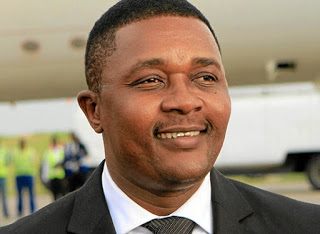
From his hospital bed Dr. Walter Mzembi appeals to President Mnangagwa: God bless and heal Zimbabwe!
Dr. Walter Mzembi was known as one of the longest-serving tourism ministers in the world and competed for the post of UNWTO Secretary-General in 2017. Dr. Mzembi was appointed Foreign Minister for Zimbabwe for a short time before his government was overturned by a military take-over on November 17, 2017. Dr. Mzembi, recently diagnosed with an urgent health issue, was admitted to a South African hospital last week for immediate major surgery.
A week after the surgery Dr. Walter Mzembi from his hospital bed issued this statement and open appeal to the President of Zimbabwe Dr. E.D Mnangagwa He is asking the president for constitutional protection of his rights to privacy in sickness and recuperation.
This is the unedited transcript of Dr. Mzembi’s public appeal:
This public appeal and update has become necessary after the State decided to make my medical condition and records a matter of public record even after pleading for discretion and confidentiality as is best practice internationally. It is also prompted by screaming headlines in most of today’s tabloids, that suggests that I was issued with a warrant of arrest after violating my bail conditions, etc. Let me state upfront that I am the least worried about a warrant of arrest at this stage, whatever prompts the State to behave in this manner. What is most important for me and my family for now, is my recovery, my health and my life, and I will at an appropriate time defend myself from the spurious politically motivated charges that have been raised against me. Indeed ” there is nothing special about Mzembi”, that he cannot be tried , and so be it when I am fit to stand trial I will make myself available and I want to thank notwithstanding the manner in which my last plea was heard, the issuing of an Administrative Warrant of Arrest, which says I shall make myself available only when I am fit, and at the time I will take the stand and explain my absence. This should be nothing newsworthy in a normal society, only in Zimbabwe do people find interest in such matters!
My lawyer, was pressured and directed by the presiding magistrate on the instigation of the public prosecutor, to give graphic details of my state of health in order to avert a warrant of arrest even as I was being simultaneously operated on in South Africa. My surgery took a gruesome four hours, running simultaneously with an attempt to issue a warrant of arrest on me by the State. I was wheeled into the ICU, with the conscious and full knowledge of the State’s intentions and could not help but feel sorry for my wife and son who stood by urging me to forget the persecution and focus on the life-saving operation at hand.
I had previously secured State Consent and endorsement of another Magistrate to travel to South Africa for the Surgery. She had in a previous hearing conducted my initial application in camera, but alas her successor would not have it, she wanted it in public, the Newsday cashed on it and headlined my tragic circumstances in a story headlined and front paged ” Mzembi critically ill and in ICU”.
Today a week later the same story has more drama and lies been recycled by a number of tabloids. I had not shared my condition so graphically described by the Newsday in its opportunistic story with my children for obvious reasons. Two of them were writing examinations in Harare, and I didn’t think it was prudent to psychologically disturb them.
They heard it from the Newsday, including my two daughters in London, and a son in Zambia. My siblings too were taken aback, by this degree of recklessness and insensitivity of the State over an individual’s health. I still have many friends locally and abroad, they too were in a state of disbelief on the degree of the callousness of our court and justice system, so were the specialists in South Africa who eventually attended to me. I don’t wish this treatment to anyone and I just wonder how we can hate each other to this extent, where we throw basic ubuntu and human ethos through the window!
The medical authorities in South Africa were not ready to expressly take me in as they had to do their own confirmation tests on my condition which took another week, and I was booked one Thursday later which coincided with the expiry of my special dispensation to seek medical attention. The State prosecutor was kept abreast agreeing with my lawyer that there would be no problem in extending my continued possession of the passport indefinitely until I was fit to stand the rigors of remand hearings or trial, only to somersault in Court demanding my immediate warrant of arrest.
I have watched his performance in several of my remand hearings, he loves drama and antics and even in this very sensitive matter he couldn’t be persuaded to a private hearing preferring to spill all my confidential medical records in an open court. Such lack of trust, sympathy, compassion, and goodwill even in such special circumstances has left me completely convinced that the State cannot guarantee my recovery let alone a fair trial in such a toxic environment. The State is seemingly persecuting not prosecuting me and every day I am psychologically battered with negative press whose source is the State and its workers. How can I haunt it to this extend even from a hospital bed?
I have repeatedly reassured the ruling Party Zanu PF, it’s President Dr. Emmerson Mnangagwa, former and current Cabinet Colleagues that I have taken a sabbatical from politics and will now concentrate on my business and corporate life. I have not set foot in my former Constituency, Masvingo South since October 2017! I can assure the President this is one Constituency where am most loved and can win it from my hospital bed without campaigning, just my mere presence on the ballot paper would do it! They cry day and night for my comeback, but I have stuck to my guns and principle of a sabbatical.
I am not active or organizing politically against him or Zanu PF or for any of the 122 registered political parties to date, but I am not deaf too, to false, fake and contrived intelligence reaching the desk of the Chief Executive of Zimbabwe and other authorities, to further drive a wedge between us. The President is in possession of a letter I wrote him sometime in late January explaining the conspiracy of three or four characters against me, and the personal abuse of ZAAC by one of its Directors against me as he settles old scores in collaboration with my former subordinates and colleagues in Government.
You would be aware that we are currently locked in a multimillion-dollar lawsuit arising out of his unprofessional conduct towards me. The abuse of State institutions is happening at this middle management level as former subordinates attempt to settle personal scores, and this includes media besmirching of my reputation, which to date I have opted not to respond to, including today ‘s sponsored articles. I embargoed the contents of this letter out of respect for the Head of State, but I may in the fullness of time declassify it to assist the public in understanding why I have been subjected to so much abuse and persecution in the last half year, that is if it matters at all.
That notwithstanding I have and still renew the assurances of my highest consideration for the office of Head of State and Government, and President of Zanu PF, my party of birth. I am fully conscious that this is not my political season and am equally not in a hurry to find relevance in the current political space. My family and I do not desire to be mixed up in any of the goings on in Zimbabwe’s political landscape and I am hoping my constitutional rights for privacy and wishes for a civil nonpartisan life will be respected and reciprocated, especially my recuperation from such delicate surgery and post b treatment.
God bless and heal Zimbabwe.

UNWTO Towards 2030: Making tourism smarter, more competitive and more responsible
UNWTO released this report of the Secretary-General Part I: Current situation and activities (b) Management vision and priorities
The 108th Executive council will come in San Sebastián, Spain, 23-25 May 2018 to decide about the following items
INTRODUCTION
The sustained growth of tourism over the last decades bring immense opportunities for socioeconomic welfare, poverty alleviation and the overall advancement of the 17 Goals of the 2030 Sustainable Development Agenda.
2. Tourism explicitly features as a target in three of the Sustainable Development Goals (SDGs): Goals 8, 12 and 14 on inclusive and sustainable economic growth, jobs, sustainable consumption and production (SCP), and the sustainable use of oceans and marine resources, respectively. Yet, given the sheer size, crosscutting nature and links with other sectors along its vast value chain, tourism has the potential to contribute—directly and indirectly—to all 17 SDGs.
3. This framework is reflected in the results of the UNWTO Members Survey for the 2018-2019 Programme of Work which fully converge with the scope of the 2030 Agenda in placing tourism at the forefront of development.
4. As we move towards a future guided by the universal 17 SDGs, a strong focus will be placed on building partnerships with the public and private sector, fostering jobs and opportunities for all, advancing technology and innovation and addressing sustainability and the fight against climate change.
II. Management vision Tourism – a key sector for the 2030 Agenda CE/108/5(b) World Tourism Organization (UNWTO) – A Specialized Agency of the United Nations Capitán Haya 42, 28020 Madrid, Spain. Tel.: (34) 91 567 81 00 / Fax: (34) 91 571 37 33 – [email protected] / unwto.org 2 5. In 2017, international tourist arrivals grew by 7% reaching 1,322 million. 2017 was the eighth consecutive year of sustained growth following the 2009 global economic and financial crisis.
No comparable sequence of uninterrupted solid growth has been recorded since the 1960s.
6. Tourism is an important driver of economic growth and development, with significant impact on job creation, investment, development of infrastructure, and the promotion of social inclusion. As one of the world’s key sectors of trade in services and the third bigger export-earning category, after fuels and chemicals in 2016, the sector is a vital pillar for national export strategies and economic diversification.
7. The value, growth and resilience of tourism to external shocks over the past decades testify to the capacity of the sector to play a decisive role in the achievement of the 2030 Agenda and the SDGs.
8. As an organization that represents such an important global socioeconomic sector, we need to work closer together to ensure that tourism contributes to a better future for all, leaving no one behind.
9. With the above in mind, the below will guide the objectives of our management vision:
Position tourism as a policy priority
10. Ensuring that the tourism sector is a major force for sustainable development requires a holistic and integrated policy framework and an effective and accountable system of governance that enable and encourage multi-stakeholder collaboration in tourism planning, development and management. This entails strengthening policies and governance structures to ensure a resilient and well-defined framework and implementation of sustainable tourism development strategies.
11. The shift from commitment to actions and results can only be achieved if tourism moves from the periphery to the core of decision-making in both the public and private domains allowing for a truly national, cross-cutting approach to the sector.
12. In that sense, we propose:
(a) To advocate for the inclusion of tourism as a priority in national, regional and international agendas; (b) To promote cross-cutting government coordination for tourism development; and
(c) To build better policies and institutions.
Lead in knowledge creation and policy
13. UNWTO’s main role is to guide the development of appropriate tourism polices that make it possible to maximize the socioeconomic value of the sector and minimize its possible negative effects. Doing so requires robust and comprehensive knowledge about tourism flows and trends, and the impact of the sector on the economy, the society and the environment.
14. To that end, we propose:
(a) To develop international standards, policy recommendations and guidelines;
(b) To carry out market research on programmatic priority areas;
(c) To advance national capacity to compile tourism data and its comparability; and CE/108/5(b)
(d) To exchange good practices on tourism policies.
Build better value for Members and expand membership
15. Addressing the needs of the Members and expanding membership are key features of our management vision. This entails strengthening the dialogue with our Members as well as prospective Members while reinforcing the capacity of the Organization to deliver.
16. Inclusive growth is a policy imperative in not only in developing countries, but also in the world’s richest nations. We need to create a new and strategic approach to lead in knowledge creation and capacity building, supported by efficient resource mobilization. New important work streams and areas of work should focus on innovation, the digital economy, smart destinations, investment and SMEs uptake. A change of mindset is required to mainstream our work, increase our competence and to fully benefit from the new tourism business models. Our action will thus be focused on:
(a) Responding to Members’ needs and offering fit-for-purpose services;
(b) Strengthening technical expertise to deliver more and better services to the Members and support the mainstreaming of tourism in their national agendas;
(c) Encouraging the sharing of good practices in tourism policies; and
(d) Attracting new Member States.
Increase resources and strengthen UNWTO’s capacity through partnerships
17. We need to explore new and innovative ways to increase our regular budget and extra budgetary resources. To accomplish this objective, it is necessary to better equip the Organization and Members with tools and knowledge on fundraising.
18. The growing recognition of tourism’s important contribution to sustainable development— including its mention in the SDGs—offers new opportunities for increased Official Development Assistance (ODA) to the sector. The OECD Development Assistance Committee (DAC) recently included UNWTO in the DAC list, recognizing its development function. Member States can now report their voluntary contributions and fees to UNWTO as ODA. However, tourism only accounted for a mere 0.14% of total ODA between 2011 and 2015.
19. In order to make real strides in the delivery of development cooperation, it is also essential that tourism policymakers, together with the Secretariat, fully engage with the development mechanisms at the country level, such as the participation in the United Nations Development Assistance Framework (UNDAF) System at the country level, as well as at the global level.
20. To this end, we propose: (a) To increase resource mobilization efforts and international public finance for tourism, including through ODA, Aid for Trade (AfT) and Foreign Direct Investment (FDI). (b) To build strategic partnerships to leverage more resources—both financial and nonfinancial (skills and competences).
To ensure the financial sustainability of the Organization in terms of the regular budget through close collaboration with the Member States, increased voluntary contributions and rigorous budget control. (d) To expand partnerships with the private sector and academia to enhance the technical and financial capacity of the Organization to deliver. III.
Programmatic priorities
21. In line with the Programme of Work for 2018-2019 approved by the UNWTO General Assembly at its 22nd session and the vision expressed above, the management proposes to focus on the following priorities in the period 2018-2019.
22. Make tourism smarter:
innovation and the digital transformation
(a) Advance smart destinations through the development of knowledge, recommendations and sharing of good practices.
](b) Support start-up projects from around the world in order to showcase and learn about the most creative ideas and projects from all over the world.
(c) Create regional tourism innovation centres.
(d) Foster innovation in product development and marketing.
(e) Develop partnerships with technology providers to create and share knowledge and set policy guidelines considering current technology advances and new business models.
23. Grow our competitive edge:
investments and entrepreneurship
(a) Develop knowledge on investment in tourism.
(b) Foster the creation of business environment that is conducive to stimulating entrepreneurship and SMEs in tourism and other sectors along the tourism value chain.
(c) Establish an Annual Global Tourism Investment Forum.
(d) Support Member States in attracting investments through, among others, the promotion of specific tourism lines within existing funding institutions.
24. Create more and better jobs:
education and employment
(a) Create a UNWTO Academy and international centres to improve skills, education and specialized training programmes.
(b) Strengthen Members’ capacity in tourism education.
(c) Support Members in the development of frameworks and policies that enable job creation.
(d) Advance research on the impact of tourism on jobs and the future of work in the sector.
(e) Promote talent development and the image of employment in tourism.
25. Build resilience and facilitate travel:
safe, secure and seamless travel
(a) Enhance Members’ resilience through crisis preparedness and communication.
(b) Strengthen cooperation with international transport organizations to carry out research and support Members to increase connectivity.
(c) Advance research and advocacy on travel facilitation and promote Members’ progress in this area. Priority 5
26. Protect our heritage: social, cultural and environmental sustainability
(a) Advance the measurement of tourism economic, social and environmental impacts through the Measuring Sustainable Tourism Initiative (MST) and UNWTO’s International Network of Sustainable Tourism Observatories (INSTO).
(b) Advance sustainable consumption and production in the tourism sector, notably through the One Planet Tourism network.
(c) Support Members in tourism congestion management in urban destinations and cultural and environmental sites.
(d) Evaluate the impact of tourism on climate change and set recommendations on how to adapt and mitigate. (
e) Support the implementation of the Global Code of Ethics, emphasizing the social dimensions of tourism—accessibility, inclusive tourism, gender equality, and child protection—and advance the UNWTO Convention on Tourism Ethics. IV.
Organizational structure Management and structure
27. The Secretary-General has decided to make some adjustments to the current structure in order to effectively support the priorities as presented above and optimize the efficiency of the Organization. 28. In accordance with the structure foreseen in the legal framework of the Organization, the Secretary-General has also decided to appoint Mr. Jaime Alberto Cabal Sanclemente (Colombia), as Deputy Secretary-General from 1 June 2018 to 31 December 2021, to support him in guiding the Organization in this new era. In accordance with Staff Regulation 15 (b), the Secretary-General kindly requests the approval of the Executive Council. CE/108/5(b) World Tourism Organization (UNWTO) –
29. Further, in order to ensure continuity in the Management of the Organization, the SecretaryGeneral wishes to inform the members of the Executive Council of the appointment of Mr. Zhu Shanzhong (China) on 1 January 2018 as Executive Director for a period of two years.
30. The Secretary-General has also decided to invite to his cabinet Mr. Manuel Butler (Spain) as Executive Director for a period of two years starting 1 May 2018.
Strengthening internal governance
31. In order to fulfil his oversight responsibilities in respect of the resources and staff of the Organization in accordance with UNWTO Internal Oversight Charter (as endorsed by the Executive Council through decision 5(LXXXVIII)) and with the aim of ensuring the responsible and efficient administration of resources, as well as a culture of accountability and transparency, the SecretaryGeneral has conducted a review of the internal control systems in relation to strategic activities of the Organization.
32. Pursuant to a competitive procurement process among international firms with previous experience in providing similar consultancy services with the United Nations, the selected company, KPMG, has submitted a comprehensive report to the Secretary-General with recommendations on concrete actions to be taken in order to establish an appropriate Governance, Risk and Compliance model in a cost-efficient and timely manner.
33. The Secretary-General will further analyse these recommendations, taking into account the financial constraints of the Organization and previous relevant decisions taken by the Governing Bodies and will report to the next session of the Executive Council on any actions taken and a roadmap for implementation.
34. The soundness of internal control mechanisms is not only an essential pillar to the rigorous budget control and ethical culture of all UN Organizations but is also essential to attract new Donors that are increasingly demanding assurances on the governance, risk management and control processes and reporting of the Organizations to which they seek to entrust funds.
The way forward: UNWTO Strategic Plan Towards 2030
35. As the world set a new universal agenda for sustainable development, UNWTO and its Members have the opportunity to shape the tourism agenda for the next 10 years.
36. In a collaborative effort between the Secretariat and its Members, the new UNWTO Strategic Plan Towards 2030 should fully integrate the specificities of our sector, a rapidly changing business model, new world emerging challenges and the United Nations Reform. It should carefully set an agenda to mitigate global challenges and provide a roadmap for the Secretariat and all stakeholders on how working together we can make tourism smarter, more competitive and more responsible, by placing people, the planet and prosperity at its core. 1 For more information, please refer to the following United Nations Joint Inspection Unit reports on “Review of donor reporting requirements across the United Nations system” (JIU/REP/2017/7), “State of the internal audit function in the United Nations system (JIU/REP/2016/8) and “Oversight lacunae in the United Nations system” (JIU/REP/2006/2), available at: https://www.unjiu.org/content/reports. CE/108/5(b) World Tourism Organization (UNWTO) – A
37.The Management proposes to initiate the process leading to the presentation of the UNWTO Strategic Plan towards 2030 at the 23rd session of the UNWTO General Assembly in 2019.
VI. Action by the Executive Council
DRAFT DECISION2 The Executive Council, Having examined the report of the Secretary-General on the management vision and priorities,
1. Endorses the priorities presented by the Secretary-General for the period 2018-2019;
2. Takes note of the new organizational structure;
3. Welcomes his proposal to revise the top-level management of the Secretariat, in order to comply with the legal framework of the Organization and optimize programme performance and coordination;
4. Approves the appointment of Mr. Jaime Alberto Cabal Sanclemente (Colombia) as Deputy Secretary-General in accordance with Staff Regulation 15 (b); and
5. Supports, in the context of the restructuring of the Secretariat, the continuity of Mr. Zhu Shanzhong (China) and the appointment of Mr. Manuel Butler (Spain) as Executive Directors, and wishes them successful tenures in the Secretary-General’s cabinet.
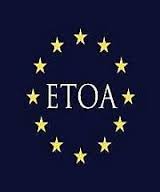
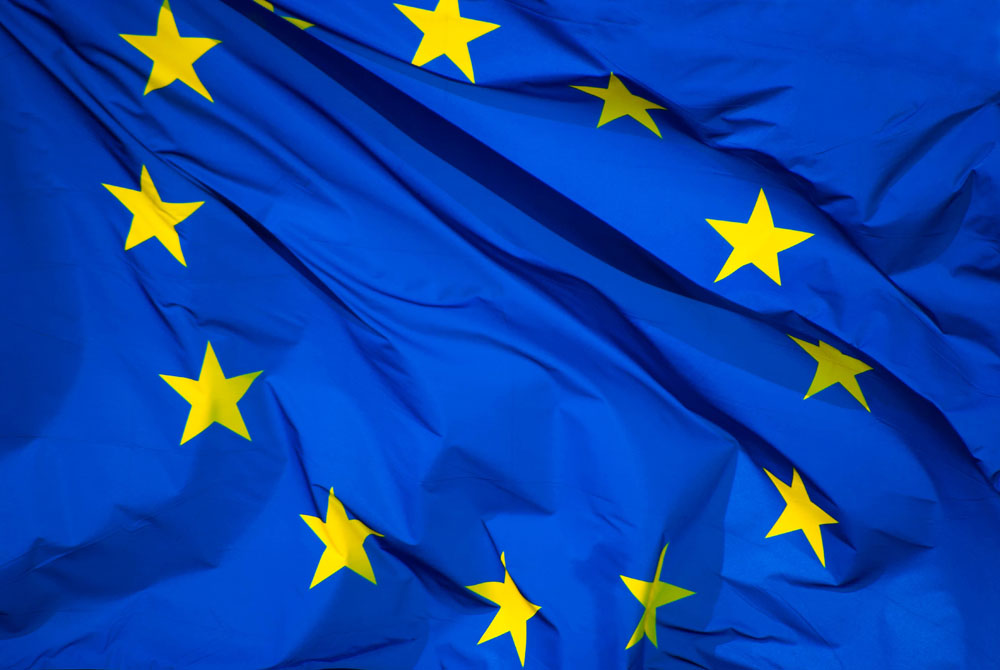
Joint EU-UNWTO report provides better understanding of tourism in the European Union
The new report ‘European Union Tourism Trends’, prepared by the World Tourism Organization (UNWTO) in cooperation with the European Commission, underscores tourism’s major social and economic benefits for 28 countries comprising the European Union (EU). EU destinations welcomed 538 million international overnight visitors in 2017, 40% of the world total. EU accommodation establishments provide over 3 billion nights a year, half of which to domestic guests (residents) and half to international guests. Tourism accounts for 6% of the EU’s overall exports, while the direct contribution of tourism to individual EU economies reaches up to 11% of the GDP.
Preliminary results for 2017 indicate that international tourist arrivals (overnight visitors) grew by 8% in the EU last year, to reach 538 million, or 40% of the world’s arrivals. The EU has enjoyed continued growth in international arrivals following the global economic crisis of 2009, with annual growth rates exceeding 4% in the last five years.
The UNWTO Secretary-General Zurab Pololikashvili stated that “Sustained growth in tourism has been instrumental in the economic recovery of many countries in Europe and around the world, contributing to job creation, economic growth and a healthy balance of payments”
EU countries earned EUR 342 billion in international tourism receipts in 2016 (31% of the world’s total), making a significant contribution to their balance of payments. As EU destinations earn more in international tourism receipts than EU residents spend on international tourism (EUR 315 billion), EU consequently boasts a surplus of EUR 27 billion in the travel trade balance.
International passenger transport (rendered to non-residents) is estimated to have generated another EUR 67 billion, resulting in total export earnings from international tourism of EUR 409 billion. This represents 6% of the EU’s exports of goods and services, making tourism the fourth largest export category, after chemicals, automotive products and food.
Over two million businesses dedicated mainly or partially to tourism operate in the EU, most of them small and medium-sized enterprises (SMEs), employing some 12 million people. For individual EU economies, the direct contribution of tourism to GDP is as high as 11%.
The UNWTO Secretary-General Zurab Pololikashvili added that “Tourism is a key pillar of the EU strategy for jobs and inclusive growth and I am confident that our strong partnership with the European Union will continue to drive the quality, sustainability and competitiveness of the European tourism sector forward”.
EU tourism is driven by both domestic and international visitors. Accommodation establishments in the EU offered 31 million bed-places in 2016. Guests spent a total 3.1 billion nights, half of which were by domestic visitors (residents) and half by international visitors. Of the 1.5 billion international nights, 1.1 billion were spent by guests from EU countries and 413 million by guests from outside the EU.
EU-UNWTO cooperation
The European Union Tourism Trends report provides a comprehensive overview of tourism in the European Union and constitutes a tool for policy makers and other tourism stakeholders for developing market strategies and enhancing the knowledge base of the EU Virtual Tourism Observatory. The report is the result of a cooperation agreement between UNWTO and the Directorate-General for Internal Market, Industry, Entrepreneurship and SMEs of the European Commission (DG GROW) and is part of the ‘Enhancing the Understanding of European Tourism’ initiative. The project aims to improve the socio-economic knowledge of the tourism sector, enhance the understanding of European tourism and contribute to economic growth, job creation and the overall competiveness of tourism in Europe.
